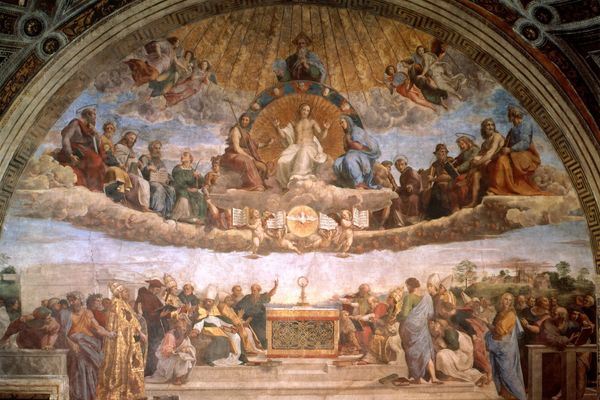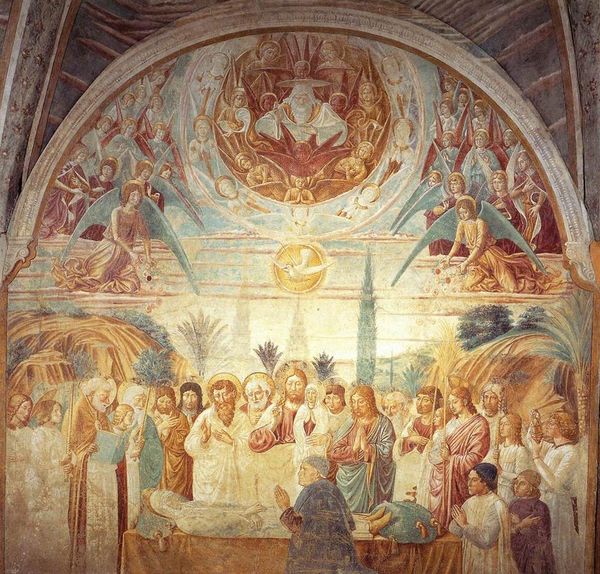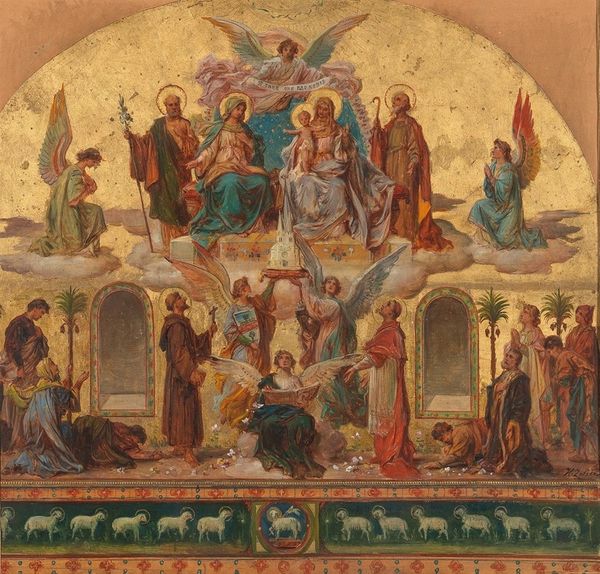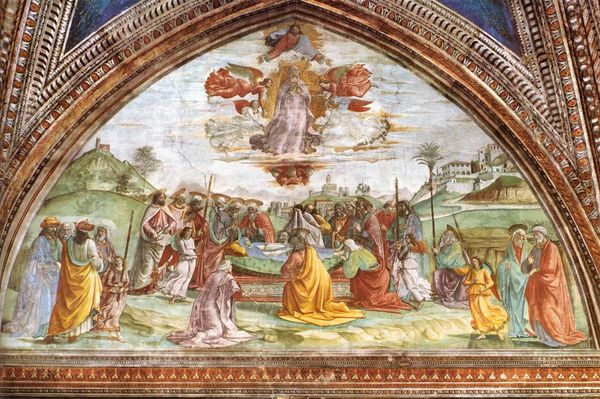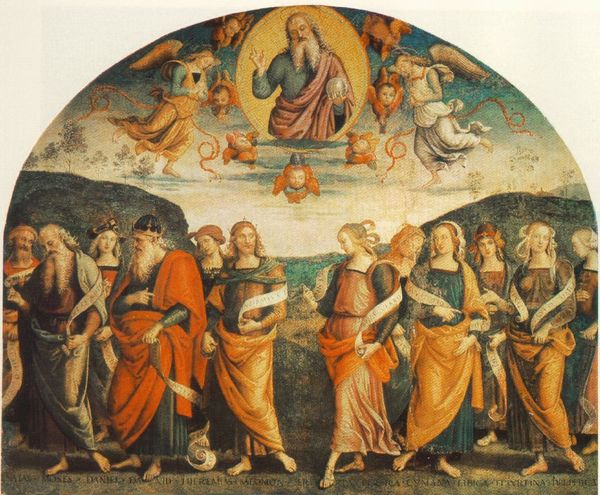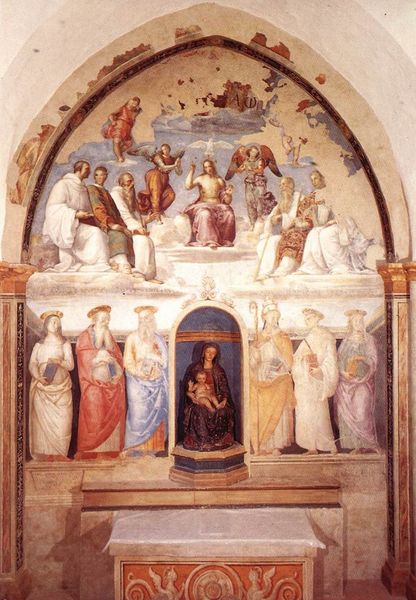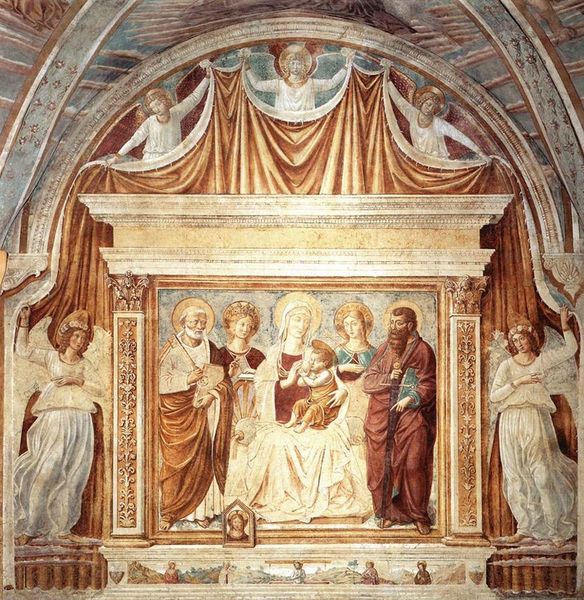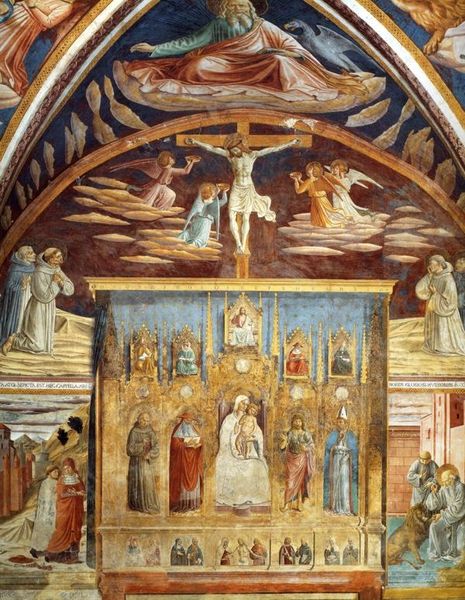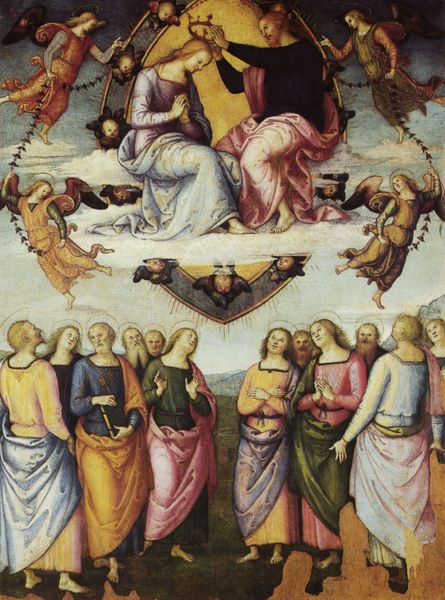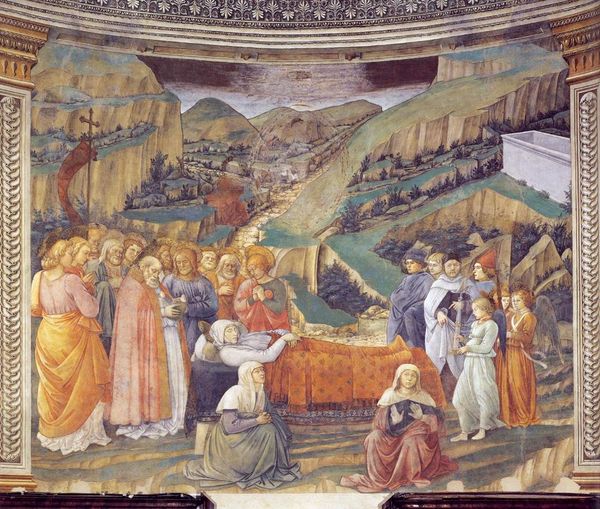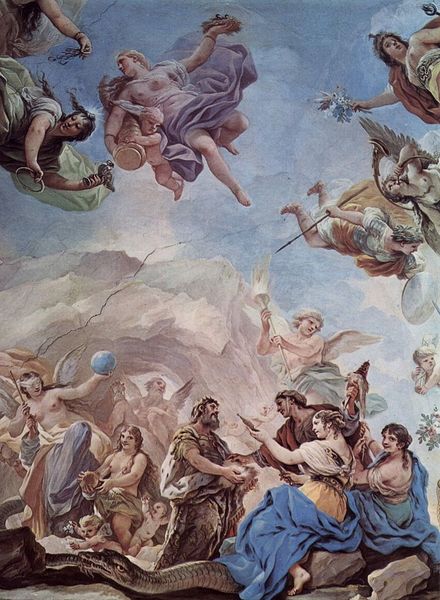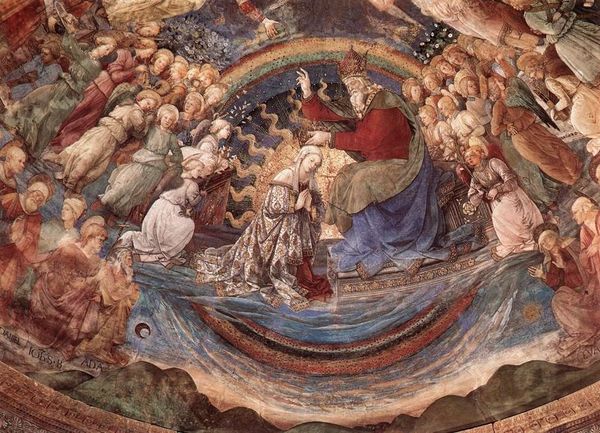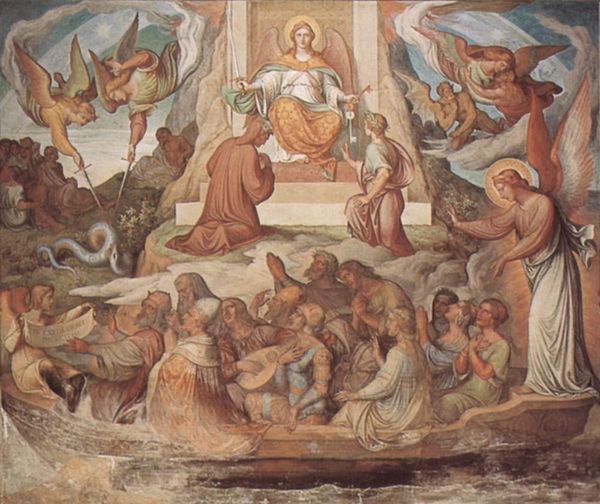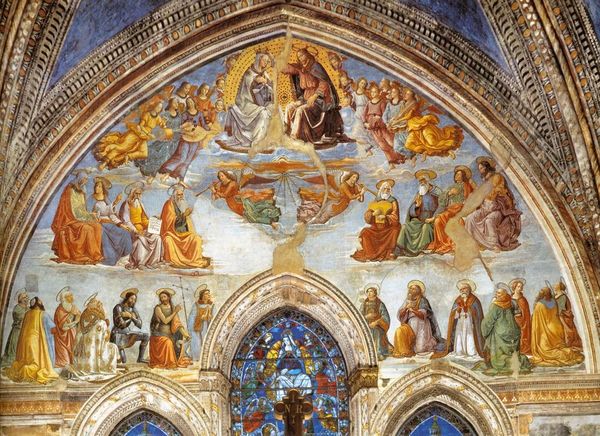
painting, fresco, photography
#
portrait
#
medieval
#
narrative-art
#
painting
#
sculpture
#
holy-places
#
perspective
#
figuration
#
fresco
#
photography
#
oil painting
#
christianity
#
history-painting
#
italian-renaissance
#
virgin-mary
#
historical building
#
angel
#
christ
Copyright: Public domain
The *Assumption of the Virgin*, painted by Benozzo Gozzoli around 1450, is a fresco, meaning it’s pigment applied directly to wet plaster. This was a favored technique in the Renaissance, and one that had to be done quickly and confidently. The way Gozzoli deploys his materials creates a luminous effect, particularly in the Virgin’s robes and the sky filled with angels. Fresco demands a mastery of color mixing and application, as the pigments are absorbed into the plaster and become part of the wall itself. The artist had to plan his composition carefully, working in sections, or *giornate*, to complete the painting while the plaster remained wet. This immediacy gives the work its distinctive quality. It bridges a history of skilled practice and aesthetic experience, and connects with wider social issues. The labor that went into this is not just the work of an artist, but of a whole workshop, which would have prepared the wall, mixed the plaster, and assisted in the painting process. Considering the time, skill, and collaboration involved, it challenges any simple distinction between craft and fine art.
Comments
No comments
Be the first to comment and join the conversation on the ultimate creative platform.
